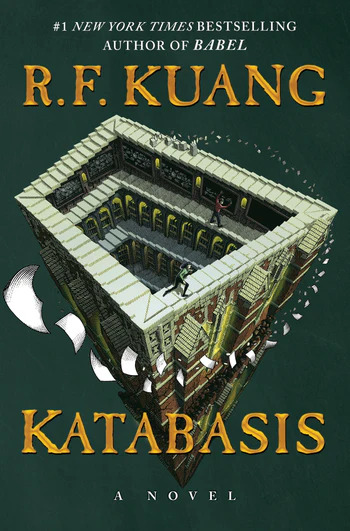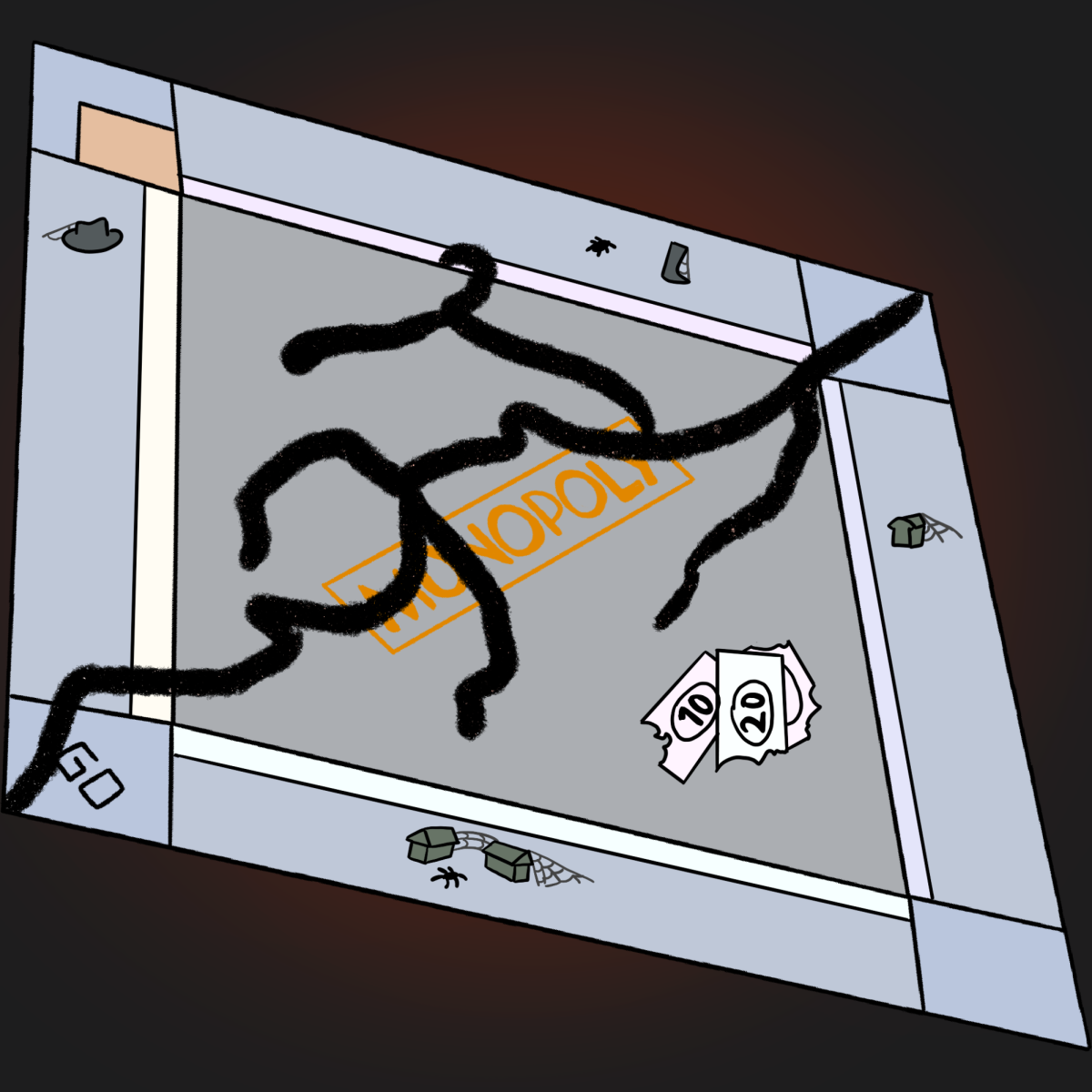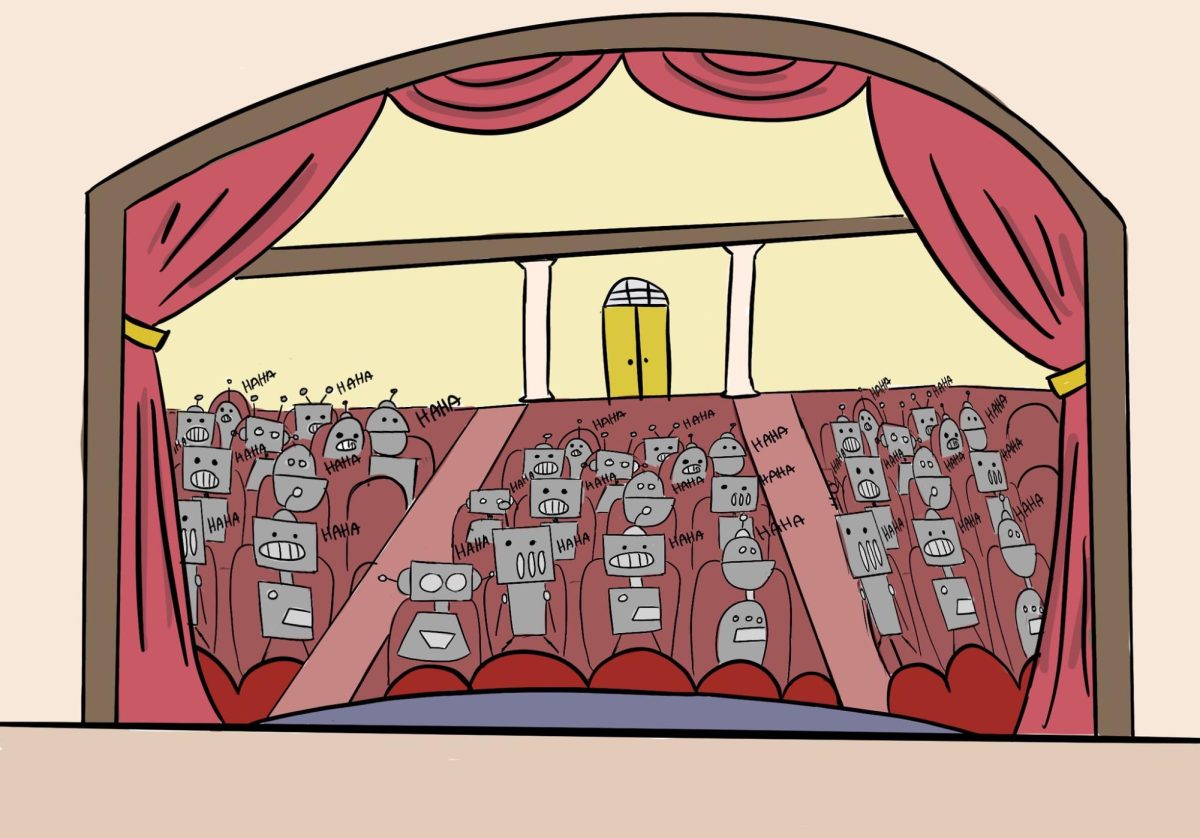
Have you ever wondered what awaits you when you die? Ever thought about which breed of afterlife you’re resigning yourself to once you pass on? R.F. Kuang, acclaimed author of “The Poppy War,” “Yellowface” and “Babel,” seeks to answer these questions and more in her third standalone novel, “Katabasis,” which was released on Aug. 26, 2025.
The story follows the journey of Alice Law and Peter Murdoch, two doctoral students hoping to break into the harsh world of magical academia — but not without a stellar letter of recommendation first. When their advisor suddenly dies in a freak accident, the two must travel into the afterlife to plead with the omnipresent Lord Yama for his life. “Katabasis” translates to “a descent into the underworld,” an adventure that many heroes have taken before. Alice and Peter follow in the footsteps of the likes of Orpheus, Odysseus and Dante, facing the perils that each level of hell has to offer in order to bring back their professor.
The book jumps straight into action, with the main characters immediately delving into the plot of the book. One thing I generally like about Kuang’s novels is her propensity for action. Something is always going to happen, and every scene feels like it drives the plot, relationships or characters forward. This allows for the book to flow nicely, and every scene feels necessary. That being said, it takes a while for the book to pick up initially, since Kuang has dropped the reader directly into a world where the main character, entrenched in the pits of academia, knows a LOT of things the reader does not. As such, the beginning of “Katabasis” drags a bit as you attempt to decipher what Alice is talking about when she describes brands of magical chalk, academic papers and intense logic.
However, once the book picks up, it really picks up, and the reader is left anticipating every drop of worldbuilding Kuang has to offer. The afterlife is a complex topic, with its earliest iterations dating back to ancient times. The underworld in “Katabasis” draws heavily from Greek myth and Dante Alighieri’s “Divine Comedy,” but Kuang has taken the liberty of including concepts from many other worldly religions, including reincarnation and limbo, as well as describing how certain aspects have different names around the world. The ruler of this conglomerate afterlife is the infamous Lord Yama, also known as Hades or Anubis in some myths.
But since death is such a personal experience, the afterlife of this book also caters to its main characters. In Kuang’s own words, “Academia is hell,” and “Katabasis” shapes itself around this idea, with each level representing a different part of the academic world. The circle of Pride is a library, where people have to find and define the concept of “good” in order to pass on. The circle of Desire is a student center, filled with everything a person could want, and so on and so forth. Each circle feels uniquely crafted, and is so interesting that you could spend two hundred pages exploring them all individually. I really loved seeing all the different souls Alice and Peter meet, because even though some of them weren’t as likable, they were interesting, with their own stories and character, making them feel fleshed out even though we spend very little time with them.
Immediately upon meeting the characters, they’re very endearing. Once again, Kuang does a wonderful job with realism, allowing the characters to have refreshing flaws and character traits. They’re smart but sometimes prideful. They want to be right. They’re desperate for the attention and approval of the person they look up to. They get things wrong. They have hobbies, they worry and they have natural human character traits. I think it’s easy to get caught up in the plot and not think about your character’s favorite food, or the sport their parents forced them into or their pet they had when they were 5 years old. But these are the little things that humanize them, make them more like us, and help the reader connect to them better.
Additionally, their relationships with one another felt very real. At the beginning of the book, Alice and Peter have a general disdain for one another. They are both vying for the attention of the impressive Professor Grimes and come into conflict as a result. But it’s a very logical rivalry. They aren’t actively fighting with each other, but are kind and decent to one another as they realize they’re stuck in the same boat. They ultimately respect each other, even past some slight awkwardness. And once they find out that they have more in common than they realize, their relationship progresses in a sensible way. They get into skirmishes as they try to one-up each other, but altogether it feels like a refreshing outlook on complex human relationships.
Of course, it wouldn’t be an R.F. Kuang book without some kind of a message. Similar to her other books, this one can get quite intense and focuses primarily on exploitation and abuse inside academic circles. It also covers themes such as mental health and burnout, internalized misogyny and many other topics related to the subject of the book. Kuang herself worked in academia, obtaining a degree at Cambridge (where Alice and Peter study) and her own doctorate at Yale. I can’t say how much of the book’s content is her personal experience, but it is a topic that shines throughout and is made more and more evident as it progresses.
The book’s focus is more on the study of magic rather than the practice of it, but I liked how realistic it made it seem, as though magic was something that could be learned like any other skill. It has drawbacks: You have to be extremely careful to be able to use it, and you have to study to get better at it. It feels like a very true depiction of what magic could look like in the real world, as if it were another science like chemistry or astronomy.
Ultimately, “Katabasis” was an enjoyable read with a refreshing topic and execution. The characters, setting and plot were all very unique, and I enjoyed it throughout. I would say it’s perfect for fans of academia and low fantasy, as well as those who enjoyed “Babel” by the same author, as both have similar elements. I definitely recommend it, and would place it at a solid 4.5 stars.












